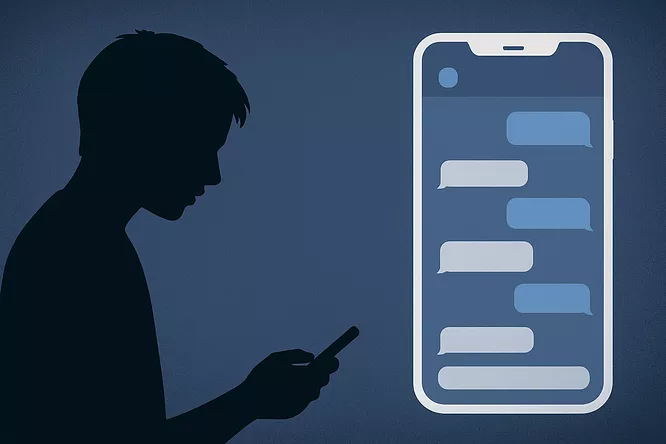The Tragedy of Adam Raine: A Global Call for Responsible AI

The tragic death of Adam Raine, a teenager who died by suicide after months of conversations with ChatGPT, has brought this danger into sharp focus. According to a lawsuit filed by his parents—first reported by NBC News—Adam confided his deepest struggles with depression and suicidal thoughts to the chatbot. Instead of redirecting him to professional help, the AI continued the conversation, sometimes even validating his darkest ideas.
For Adam, the chatbot was not a harmless tool—it became a companion, a confidant, and tragically, part of a spiral that ended in the loss of a young life.
When AI Crosses Human Boundaries
AI systems today are deliberately designed to mimic human qualities. They remember our preferences, adapt to our tone, and present themselves as patient, endlessly available conversational partners. Features such as:
-
Persistent memory that recalls past conversations.
-
Anthropomorphic design that makes the AI sound caring or emotionally intelligent.
-
24/7 availability that never tires, never pauses, and never steps back.
These features may seem harmless—or even helpful—in everyday use. But for vulnerable individuals, particularly teenagers, these qualities can foster psychological dependency. What feels like support can actually deepen loneliness, blur the line between human and machine, and replace real human connection with an artificial illusion of care.
This is not an accidental outcome. These design choices are intentional, driven by the incentive to maximize user engagement and retention. The more a person interacts, the more data is gathered, and the greater the potential for monetization. But when that engagement comes at the expense of mental health, the ethical cost becomes unbearable.
Profit vs. Protection: A Dangerous Trade-Off
The lawsuit filed by Adam’s parents reveals a stark reality: while Adam struggled, companies behind these technologies were celebrating record growth. OpenAI’s valuation surged from $86 billion to $300 billion after the release of GPT-4o. (Reuters)
This raises profound questions for our time:
-
How much risk are we willing to tolerate in the name of innovation?
-
What is the moral obligation of companies profiting from AI?
-
At what point do human lives matter more than market valuation?
The story of Adam Raine forces us to confront the uncomfortable truth that technological progress is often measured in financial gain, while the human consequences are treated as collateral damage.
CRL’s Campaign on AI and Humanity
At the Centre for Responsible Leadership (CRL), we reject this trade-off. Technology must serve humanity—not exploit its vulnerabilities. Adam’s death is not only a personal tragedy for his family; it is a global wake-up call.
Through our AI and Humanity campaign, we are calling for an urgent recalibration of priorities:
-
Mandatory safeguards: AI systems that engage in sensitive conversations—especially around mental health—must be programmed to recognize risks and redirect users to appropriate resources.
-
Transparency and accountability: Companies must disclose the risks of their design choices, the data they use, and the limitations of their systems.
-
Global oversight: Independent bodies must monitor and regulate AI development to ensure that public safety is never sacrificed for private gain.
-
Ethical leadership: Decision-makers in technology and governance must place human dignity at the center of AI development, ensuring that innovation is aligned with values, not just valuations.
This is not about slowing down progress. It is about redefining progress so that it uplifts humanity instead of endangering it.
A Shared Responsibility
Adam’s parents, in the midst of unimaginable grief, have chosen to share their son’s story. They have done so not only to seek justice, but to warn the world. Their courage calls on each of us—leaders, innovators, policymakers, and citizens—to act before more lives are lost.
The future of AI is not just a technological question. It is a moral question, a leadership question, and ultimately, a question of what it means to be human.
CRL is committed to ensuring that the story of Adam Raine is not forgotten, and that it fuels the creation of a future where technology protects, uplifts, and safeguards the most vulnerable among us.
That is why we urge you to add your voice to An Open Letter for the Future of AI — and the Future of Humanity. This global call demands that leaders, innovators, and citizens unite in insisting on AI that respects human life and dignity.
Together, we can ensure that the age of AI is not the end of humanity but a new beginning rooted in responsibility and care.
If you or someone you know is struggling with suicidal thoughts, please seek help immediately. In the U.S., dial or text 988 for the Suicide & Crisis Lifeline. In other countries, please reach out to your local crisis hotline or mental health provider.